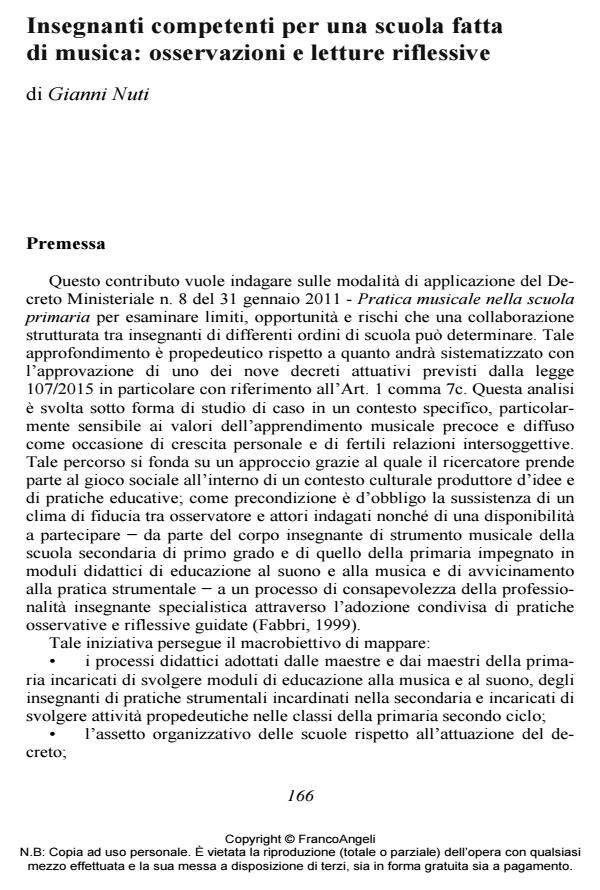Competent teachers for a music made school: observations and reflective readings
Journal title EDUCATIONAL REFLECTIVE PRACTICES
Author/s Gianni Nuti
Publishing Year 2017 Issue 2017/1
Language Italian Pages 18 P. 166-183 File size 279 KB
DOI 10.3280/ERP2017-001011
DOI is like a bar code for intellectual property: to have more infomation
click here
Below, you can see the article first page
If you want to buy this article in PDF format, you can do it, following the instructions to buy download credits

FrancoAngeli is member of Publishers International Linking Association, Inc (PILA), a not-for-profit association which run the CrossRef service enabling links to and from online scholarly content.
The study investigates experimental inclusion, in Italy, of instrumental teaching in primary schools of the second degree, the organizational arrangements, the teaching strategies adopted but above all on the forms of relationship / partnership between teachers of different types of schools, with different cultural approaches and equally diverse methodologies. Through a case study in which the researcher on one side adopts a systematic monitoring system, the other takes part in the social game by moving questions to various stakeholders surveyed in individual and group situations favors the emergence of a number of nodes critics on which to graft a corpus of improvement actions. The finding of the intervention scheme is jus so this fruit of a process in which the reflective practices not only help to gain awareness of the teaching profession in specific contexts, but also facilitate the sharing of evolutionary perspectives, the co-construction of an educational setting and training more complete and integrated in a still too marginalized area such as the performing arts and music in particular.
Gianni Nuti, Insegnanti competenti per una scuola fatta di musica: osservazioni e letture riflessive in "EDUCATIONAL REFLECTIVE PRACTICES" 1/2017, pp 166-183, DOI: 10.3280/ERP2017-001011